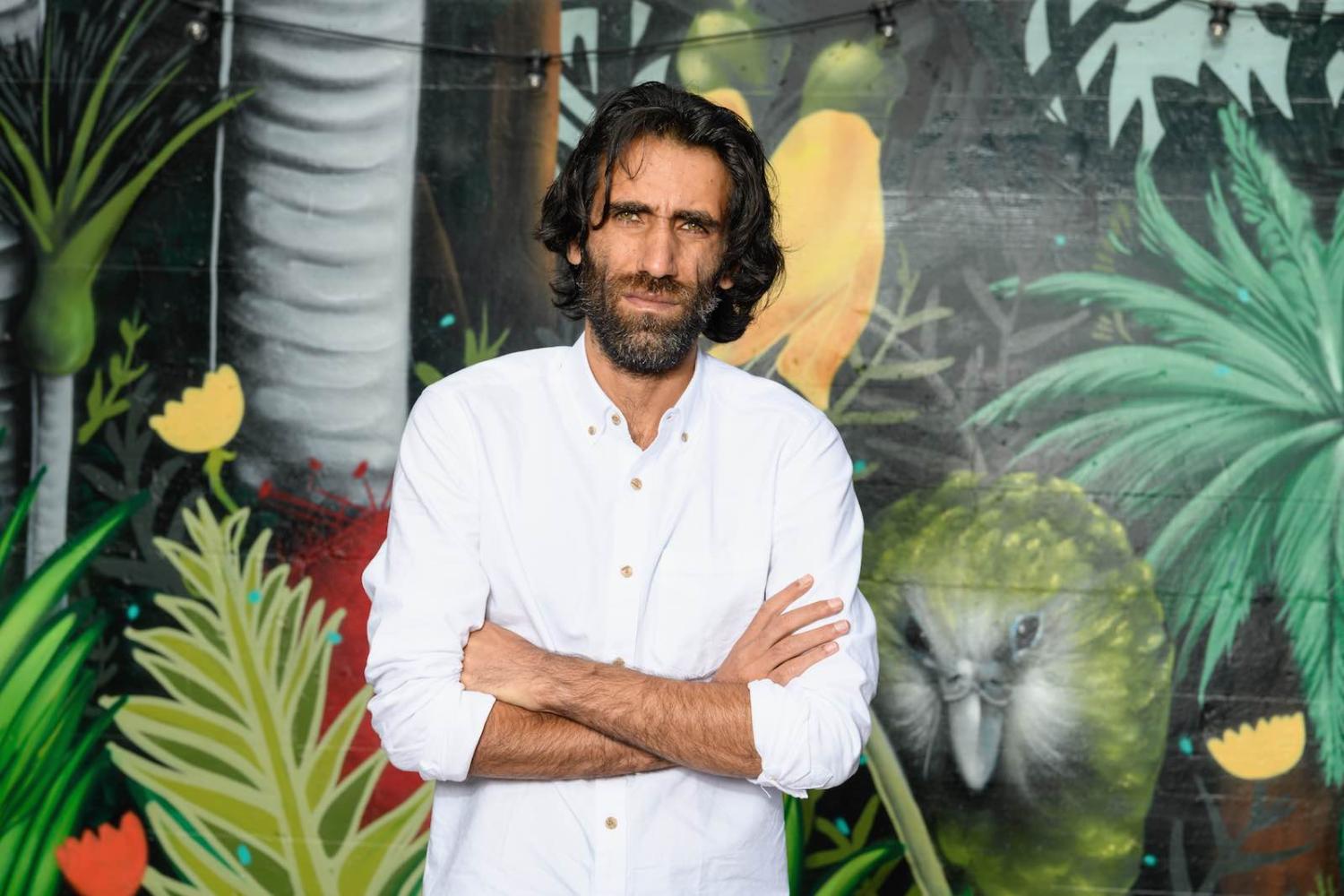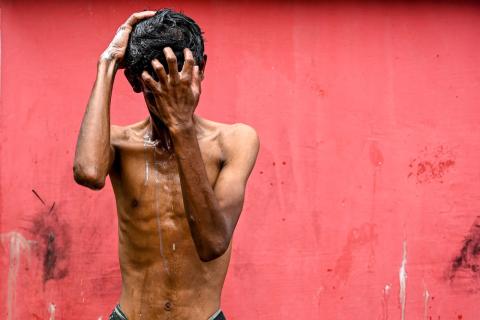Although Behrouz Boochani has never set foot on the Australian mainland, his is a familiar name in the country, a link to the men on Manus Island subject to Australia’s offshore processing arrangements in the Pacific. His escape to be “free in New Zealand” this month, after six years languishing in Papua New Guinea, made headlines and drew wide attention.
How Boochani finally got out of PNG, and whether in doing so he might have paved the way for others to leave, too, is important to examine. Ultimately what his case has highlighted is that for many of the few hundred men left in PNG, the greatest obstacles to resolving their situation are bureaucratic.
Boochani, a Kurdish journalist who fled Iran in 2013, twice sought to travel by boat from Indonesia to seek asylum in Australia. In a cruel twist of fate, after the first vessel sank, the second arrived just four days after then Prime Ministers Kevin Rudd of Australia and Peter O’Neill of PNG stood up in Brisbane to announce a radical change in policy, according to which no refugee arriving by boat from that day forward would ever be permitted to settle in Australia.
Despite saying he feels “free” in New Zealand, Boochani is still shackled by his temporary and precarious immigration status. His future remains subject to government discretion, an uncertainty few of us could ever fully understand.
The deployment of navy vessels to turn back boats and the building of border walls and fences are some of the most tangible measures countries take to prevent possible refugees from entering their territories. But a far more basic and preliminary obstacle to movement between countries is the need for travel documents and visas.
PNG and Nauru, as parties to the Refugee Convention, have an obligation to issue refugees “lawfully staying in their territory” – such as Boochani – documents for the purpose of travel outside the country. While there are some limited cases in which this has happened, travel documents have not been issued as a matter of course to all of those found to be refugees in either PNG or Nauru.
Even when they do have such documents, the next hurdle – getting visas or entry permits – is a discretionary matter for the receiving country. There is no legal duty to issue visas to non-citizens. The decision rests with the government of the day to decide on what is usually a case-by-case basis.
In Boochani’s case, he did not travel on a document provided by PNG, but rather a blue UNHCR-issued passport, which is less common and would have stood out to immigration authorities.
At the checkpoint leaving Port Moresby airport, he would have been confronted by uncertainty. There was every possibility the PNG Immigration and Citizenship Authority – the same government department that had overseen Boochani’s detention on Manus Island, refugee status determination, and subsequent stay in PNG – could have refused to let him leave the country at all. When they did, albeit after many questions and phone calls to New Zealand to ensure he would be admitted, there was no way of knowing how he would be received in the Philippines, where he was transiting, or whether he would be permitted to board the next leg of his journey from Manila to Auckland. He could only have hoped that as a party to the Refugee Convention, with a history of offering protection to refugees in transit, the Philippines would not detain him or deport him back to PNG.
Now in New Zealand, the risks and uncertainty continue.
Boochani’s visa is only valid for one month, and New Zealand immigration authorities have affirmed that he must depart New Zealand before that period expires and will not receive special treatment if he overstays his visa. There is a possibility that Boochani might apply for asylum in New Zealand before the month is up, in which case he could be required to go through a refugee status determination procedure all over again, with its accompanying emotional and psychological drain.
Alternatively, the New Zealand immigration minister could exercise his discretion to recognise the outcome of the determination undertaken by PNG, and grant Boochani a protection visa on the basis of his established refugee status.
Or, for a middle route, Boochani could be granted a bridging visa allowing him to remain in New Zealand until his eventual resettlement to the United States, which agreed to accept him under a deal reached between Australia and the US in 2016. However, it is unclear whether Boochani’s departure from PNG has put that resettlement offer in jeopardy. There is no “right” to resettlement – like the grant of visas to non-citizens, it is a discretionary matter and, in the case of the US resettlement deal, one that is affected by unprecedented cuts to the broader US resettlement program under the Trump administration.
So, despite saying he feels “free” in New Zealand, Boochani is still shackled by his temporary and precarious immigration status. His future remains subject to government discretion, an uncertainty few of us could ever fully understand.
Boochani’s case also highlights what is often lost in the focus on abstract labels and legal categories based on immigration status. Among the men Australia sent to PNG are acclaimed writers and journalists, professional sportsmen, artists, recipients of prestigious international human rights prizes, and advocates working to help others. There are – if given the chance – doctors, engineers, and other skilled workers; students and apprentices; fathers, uncles, sons, and nephews, waiting to join family members abroad.
What stands between these men and their potential is a set of bureaucratic hurdles: namely, the need for travel documents and entry permits – and immigration ministers willing to exercise their discretion to approve travel and to grant visas to remain.

